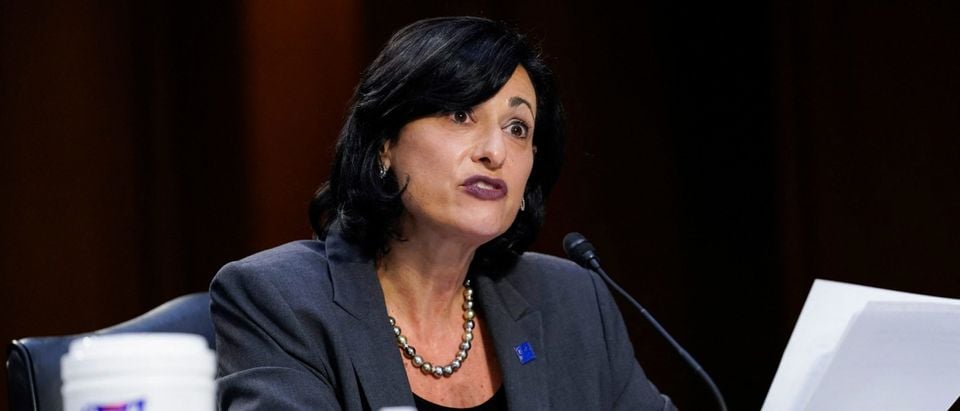Fourteen months since the COVID-19 pandemic began to wreak havoc on the United States, the Centers for Disease Control (CDC) still hasn’t issued guidance for the behaviors and restrictions of individuals who beat COVID-19.
The CDC made big news last week by updating its guidance to remove most restrictions on Americans who have been fully vaccinated against COVID-19. A vaccine isn’t the only way to get immunity from the virus, but it appears to be the only way to be free from mask mandates and gathering restrictions.
It’s become increasingly clear in recent weeks that CDC guidance is designed, at least in part, to encourage people to get vaccinated, even if that requires blurring the lines on what the science actually says about vaccinations and the risk of spreading COVID-19.
Dr. Anthony Fauci admitted as much Tuesday. The top medical adviser to President Joe Biden told ABC’s Good Morning America that he had been wearing a mask indoors even after being vaccinated in order to avoid “giving mixed signals” even though it wasn’t necessary from a medical perspective. (RELATED: Fauci Hints That CDC Could Soon Free Children Of Mask Mandates)
Science shows that its incredibly unlikely that someone who is vaccinated will contract COVID-19, it’s even less likely that they will develop serious symptoms and there’s very little chance they will spread the virus to someone else, especially another vaccinated person.
Despite that being known, along with other information such as the incredibly small rate of outdoor coronavirus spread and spread amongst children, the CDC waited until mid-May to update guidance allowing vaccinated individuals to return to a normal life.
Some have speculated that the agency was so slow to follow the science because it wanted more people to get vaccinated first. There is no way to know for sure who is and isn’t inoculated, so having different rules for different groups of people could prove complicated as long as tens of millions of American adults haven’t gotten their shot yet.
President Biden and Vice President Kamala Harris issued ultimatums to Americans after the updated guidance was announced: wear a mask, or get a shot.
Releasing guidance for naturally immune individuals would not serve the end of persuading as many people to get vaccinated as possible, which appears to be the number one priority of the CDC. (RELATED: American COVID-19 Deaths Hit Lowest Rate In More Than A Year)
“A study of 6.3 million Israelis showed that the estimated protection for those already infected was 94.8% from reinfection and 96.4% from severe illness, as compared to effectiveness of 92.8% and 94.4%, respectively, from the vaccines.”@RMConservativehttps://t.co/J7UjqCUf8F
— Thomas Massie (@RepThomasMassie) May 19, 2021
It’s been revealed in numerous studies that contracting, and then recovering from COVID-19 provides some level of natural immunity. Results have varied on just how much immunity is granted; for elderly people, it appears more likely that natural immunity can fade and a person can still be at risk for reinfection.
However, one study found that recovered COVID-19 patients may have as much as 95% protection for an extended period of time. Studies of similar SARS and MERS viruses have found that they grant natural immunity for a period as long as two-to-three years post-infection.
Most experts and research suggest that a vaccine is still a superior option to natural immunity. This is because natural immunity may not be tailored to deal with different variants of the virus the way a vaccine could be, there isn’t as much clinical data on the efficacy of natural immunity as there is for vaccines, and obviously, getting COVID-19 will be worse for the health of most people than getting a vaccine.
However, it stands to reason that someone who has recovered from COVID-19, and thus has natural immunity, could potentially have more freedoms according to CDC guidance than someone who has neither been vaccinated nor had the virus. Providing that flexibility may lead to those individuals having less need to get vaccinated, though, and that is seemingly the new priority of the agency, not following the science.
The Daily Caller reached out to the CDC for comment but did not receive a response.


